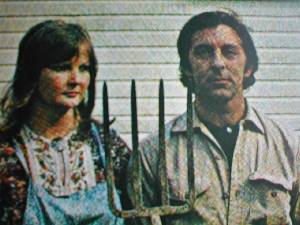|
Born in Rock Island, Illinois, on 20 February 1937, into a
show-business family, David Thomas Ackles became involved in
performance at an early age. His grandfather had been a music hall
comedian and his grandmother was leader of an all-woman band of the
type featured in the movie Some Like It Hot. He started out in
vaudeville at the age of four, then, between 1946 and 1949, took a role
in the film series Rusty the Dog for Columbia Pictures. David
played a character named Tuck Worden. His brother in the series was
played by Dwayne Hickman, who moved on to become Dobie Gillis
on American TV.
During
his degree course at the University of Southern California, David took
a year out in Scotland to attend Edinburgh University, where he studied
literature. He then returned to the States, to complete his degree in
Film Studies. His skills encompassed ballet and choral music
composition though he moved on to film, musical comedy and theatre as
well as writing for television. He also managed jobs as a private eye
and a security guard and it has been suggested that he spent some time
in prison, having strayed onto the wrong tracks for a while. That was a
story that was mythologised by a jokey interview that went a little
wrong and his only experience of jail was very briefly following a
driving offence. By the late 60s he was writing songs that were of
stunning beauty and Elektra employed him initially as a songwriter, on
the basis of hearing Blue Ribbons.
His songwriting skills and accompanying recorded examples led
to a more elaborate contract, which resulted in three wonderful albums
over five years. These received enormous critical acclaim, although his
unusual voice and eclectic style may not have been to the taste of the
general public. Something of an artist's artist, David's Road to
Cairo was picked up by Julie Driscoll, but failed to make the
singles charts, while Spooky Tooth made a passable version of Down
River. He reached a critical apogee with American Gothic
before being dropped by Elektra, who clearly could not see their
investment in him being recouped.
The promotion of his first album involved a lot of radio work
and many people in the UK went out and bought his material as a result
of hearing Down River or Blue Ribbons played live on
John Peel's Radio One programme. Others didn't discover his work until
the release of American Gothic, with its rave review by Derek
Jewel in the Sunday Times.
In the States, David played many shows and concerts,
including one in 1970 at the Troubadour, West Hollywood, supporting
Elton John, who became an immediate fan.
A switch to Columbia for his fourth album didn't assist his
career in music. Perhaps Columbia were looking to promote him as
another Leonard Cohen, but the result was a good album that few people
bought. The album wasn't even issued in Europe and fans there had to
rely on obtaining one of the few imported copies. The contract was
dropped and that, for many people, was the last we heard of David
Ackles.
At least that was until the early 90s when the release of his
three Elektra albums on CD sparked renewed interest. Phil Collins had
appeared on Desert Island Discs, a UK radio show, where he
cited Down River as one of his favourite tracks of all time and
one that, if he were marooned on a desert island, he would want to have
with him. Elvis Costello also professed himself a fan and featured one
of David's songs as part of his stage act for a while.
|
|
His career in popular music cut short, David returned to
writing TV scripts, along with work on ballet scores and some lecturing
on commercial songwriting. In 1981, a drunk driver rammed his car and
his arm was badly damaged. A steel hip meant he spent six months in a
wheelchair, but he fought free of it when asked to choreograph a show.
It still took years before he was able to return to the piano. Movie
scripts include Word of Honour (1981, co-written with Douglas
Graham, music by Bruce Langhorne, who both worked with him on Five
and Dime) and Father of the Year. He also wrote a
children's series for American television.
David completed the score for a musical, Sister Aimee
in the early 90s and had written more for TV. He settled on a six-acre
horse farm in Tujunga with Janice, his wife of 26 years. She is the
lady featured on the covers of the American Gothic album. When
interviewed for Q Magazine in 1994, David expressed a wish to get back
in touch with Bernie Taupin to record some new songs, but that hope was
never fulfilled, although he did record a great deal of material over
the years. Most recently, he was involved in student theatre production
and had a success with Kurt Weill and Bertolt Brecht's Threepenny
Opera for the University of Southern California in 1997. An
interview with him for the USC's Daily Trojan was available on
the USC website, but has now been removed. A copy of it appears on my
Press Articles page (see below). The interview makes scant mention of
David's past life as a singer/songwriter, concentrating principally on
his views on directing and on the piece he was working on.
|

|

